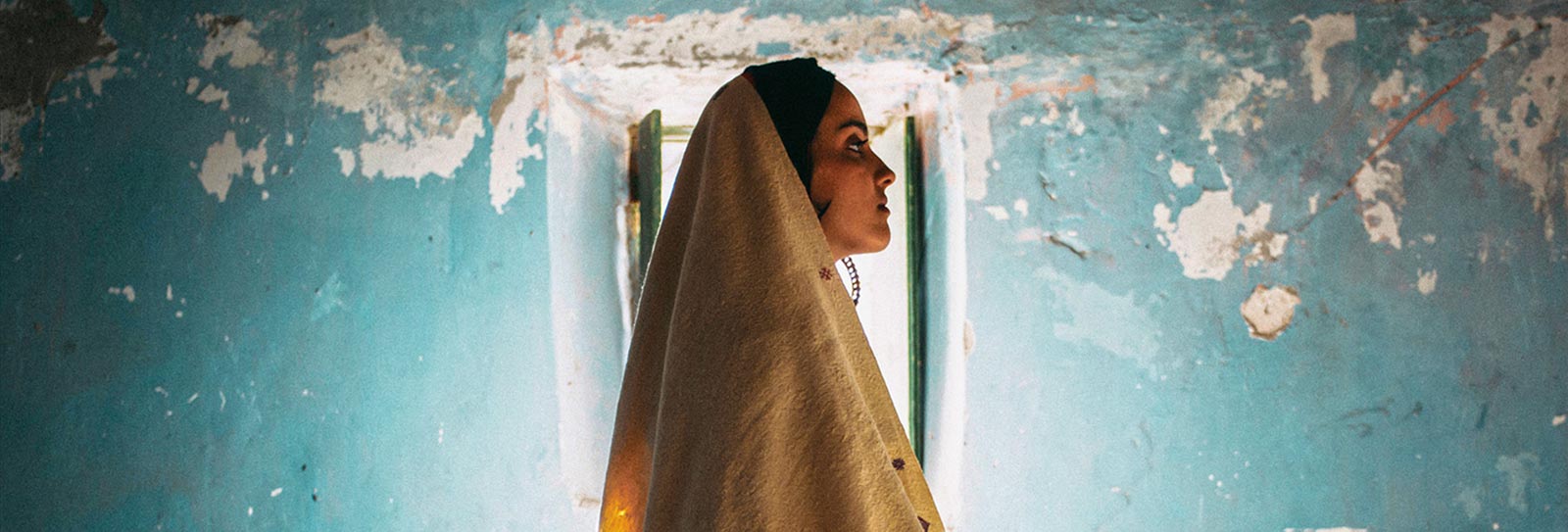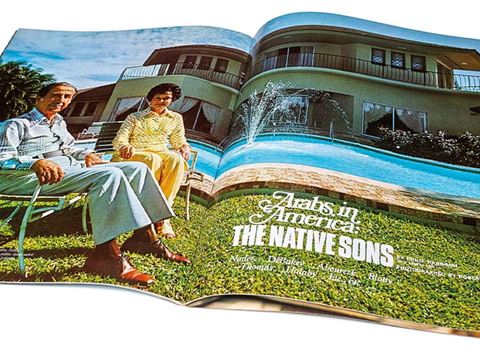
FirstLook: My Grandmother’s Tlaba
- Arts
- Photography
Reading time:2min
Photograph by Nada Harib
In my hometown of Yefren, about 200 kilometers southwest of Tripoli, Libya, in the Nafusa mountains, my cousin Mira wears our grandmother’s tlaba (wool garment) to connect to her family roots. The photo is part of a documentary project I started to depict Amazigh women from Libya.
As a Libyan woman, I care about women in Libya. And because I am Amazigh, a term for the indigenous Berber “free people” of North Africa, I am drawn to photographing my own unique culture.
Our country is rich with stories written in art, in architecture, and in diverse traditions and languages. Focusing on the lives of women is challenging, yet I dream of taking more photos of them, more photos of us, while capturing the beauty and reality of Libya and highlighting life, as it is, in all its shades.
Linguistically speaking, Amazigh is a feminine word. Historically, Amazigh women were queens and held respected positions and leadership roles throughout North Africa.
Amazigh traditions differ from culture to culture. In Yefren, the tlaba played a specifically significant role. My mom told me how my grandmother wove her tlaba from their own sheep. Traditionally it was worn on every important occasion throughout the year, winter and summer, from wedding celebrations to childbirth and somber times of mourning at funerals. Tlaba is a lifestyle; the patterns are not just intersecting threads, but strands interweaving life and death, present and past, nature and earth.
Working on projects in my own country and being able to go farther than I used to go allow me to have new perspectives, and I was able to push through barriers of fear and challenges. It helps me tell stories that are beyond the stereotypical images of Libya.
—Nada Harib
@nada_harib, www.nadaharib.com
You may also be interested in...

FirstLook: Soaring off Ambon Island
Arts
This photo was taken off Ambon Island, East Indonesia in 2010. It is one of my favorites, illustrating the free-spirited nature of the children in the rural archipelago. While some children in the big cities may stay inside and play computer games, the children in Ambon with easy access to the water see the ocean surrounding their village as their playground.
FirstLook: "Arabs In America: Native Sons"
Arts
In 1975 AramcoWorld dedicated an entire issue to celebrating the lives of Arab Americans and their impact—from renowned heart surgeon Michael DeBakey to White House correspondent Helen Thomas to entertainer and St. Jude Children’s Research Hospital founder Danny Thomas..jpg?cx=0.5&cy=0.5&cw=480&ch=360)
FirstLook: A Market’s Port of Call
History
Arts
After the war in 1991, Kuwait faced a demand for consumer goods. In response, a popular market sprang up, selling merchandise transported by traditional wooden ships. Eager to replace household items that had been looted, people flocked to the new market and found everything from flowerpots, kitchen items and electronics to furniture, dry goods and fresh produce.